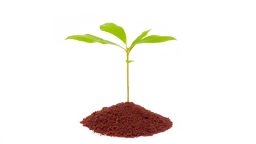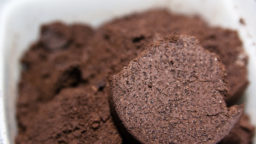Coffee grounds and gardening are naturally a good fit. Whether you are composting with them or applying them directly to your garden and around your yard, you’ll discover that coffee can affect your plants in much the same way it does you.
If you think your garden is in need of a pick-me-up, get ready to be amazed at the effects it will produce.
Used Coffee Grounds Make Great Fertilizer
When added directly to the garden soil, the grounds add to the organic material makeup of the soil itself. This addition aids in the retention of water, improves proper drainage and aerates the soil.
The coffee also attracts earthworms and aids in the maintenance of microorganisms
If you have acid-loving plants, fresh coffee grounds (not used) will help raise the acid levels of the soil. Note: used grounds are a neutral PH and won’t affect either way.
To get the full benefits of used coffee grounds as a fertilizer, work the grounds into the soil or your garden, versus just sprinkling them on top.
General Benefits of Used Coffee Grounds
In addition to a fertilizer, grounds can be used as a mulch for plants. It can also be used to repel slugs and snails, thanks to the caffeine content. In other words, don’t bother with decaf.
If you are into vermicomposting, your grounds are an excellent worm food. Apparently, worms are as addicted to coffee as we can be.
Want to see what I call THE ULTIMATE SURVIVAL GARDEN?
Composting with Used Coffee Grounds
If you already have a compost pile, did you know your used coffee grounds would make a fantastic addition? Tossing your used coffee grounds (along with the paper filter) is a great way to reduce your footprint in your local landfill and bring added benefits to your gardening at the same time.
As used coffee grounds compost, they add nitrogen to your composting pile. One thing to be aware of, however. Used coffee grounds are classified as a green compost material so you will need to balance them with brown compost material to keep your levels optimal.
Some Thoughts on Using Fresh Coffee Grounds in the Garden
While fresh coffee grounds can sometimes cause more harm than good to your garden, there are a few circumstances where it could come in handy.
As we mentioned earlier, fresh grounds can benefit acid-loving plant including:
- Azaleas
- Blueberries
- Carrots
- Hydrangeas
- Lilies
- Radishes
Suggested Article: 5 Cheap Gardening Tricks to Help Your Budget
In the case of root crops, like the carrots and radishes, you’ll get the best results if you mix in the fresh grounds at the time of planting. Tomatoes, however, don’t typically respond well, even though they like acid soil. Maybe they have a caffeine intolerance like some people I know?
Some gardeners like to use fresh coffee grounds as an organic weed suppressor, keep in mind, though, that some beneficial fungal pathogens could be suppressed at the same time, creating a less than desirable environment for some plants.
Time to Start Brewing – Well, Not Necessarily
If you are a regular coffee drinker, you already have a supply readily on hand. That doesn’t mean you need to take up the habit though.
You don’t need to be a coffee lover, or even need to go out and buy a coffee pot just to brew it up for your plants. Check around at your local coffee shops. Many locations, both national chains, and local small businesses will save them to hand out to anyone who comes asking. In fact, a lot of places hand it out for free just to avoid it being tossed in the trash at the end of the day.


